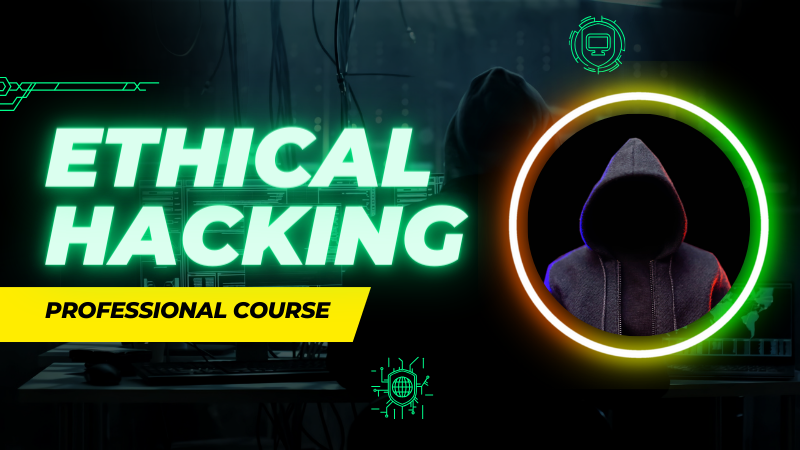
Course Content: Ethical Hacking Training in Jalandhar
Module 1: Introduction to Ethical Hacking
- What is Ethical Hacking?
- The Role of Ethical Hackers
- Types of Hackers (White Hat, Black Hat, Grey Hat)
- Legal and Ethical Aspects of Hacking
Module 2: Information Gathering and Reconnaissance
- Footprinting and Enumeration
- Active and Passive Reconnaissance
- Google Hacking and OSINT (Open Source Intelligence)
- Tools and Techniques for Information Gathering
Module 3: Scanning and Enumeration
- Port Scanning Techniques (TCP, UDP)
- Network Scanning with Nmap
- Vulnerability Scanning
- Banner Grabbing and Enumeration
Module 4: Vulnerability Assessment and Analysis
- Vulnerability Assessment vs. Penetration Testing
- Common Vulnerabilities and Exploits
- Vulnerability Scanning Tools
- Vulnerability Databases (CVE, NVD)
Module 5: System Hacking
- Password Cracking Techniques
- Privilege Escalation
- Malware (Viruses, Trojans, Worms)
- Rootkits and Backdoors
Module 6: Network and Web Application Attacks
- Man-in-the-Middle (MitM) Attacks
- DNS Spoofing and ARP Poisoning
- Web Application Attacks (SQL Injection, XSS, CSRF)
- Session Hijacking
Module 7: Wireless Network Hacking
- Wireless Security Protocols (WEP, WPA, WPA2)
- Wireless Attacks and Cracking
- Rogue Access Points
- Wireless Security Best Practices
Module 8: Social Engineering
- Social Engineering Techniques (Phishing, Pretexting, Tailgating)
- Insider Threats
- Social Engineering Prevention and Awareness
Module 9: Cryptography and Cryptanalysis
- Encryption Basics
- Cryptographic Algorithms (AES, RSA)
- Cryptanalysis Techniques
- Steganography
Module 10: Penetration Testing and Reporting
- Penetration Testing Methodology (Reconnaissance, Scanning, Exploitation)
- Post-Exploitation Techniques
- Reporting and Documentation
- Remediation Recommendations
Module 11: Wireless Network Security
- Wireless Network Security Best Practices
- Configuring Secure Wireless Networks
- EAP (Extensible Authentication Protocol) and RADIUS
- Wireless Intrusion Detection Systems (WIDS)
Module 12: Mobile and IoT Device Security
- Mobile Device Security
- IoT (Internet of Things) Device Security
- Risks and Challenges
- Securing Mobile and IoT Devices
Module 13: Cloud Security
- Cloud Computing Basics
- Cloud Security Risks
- Securing Cloud Environments
- Cloud Security Tools and Services
Module 14: Legal and Ethical Considerations
- Laws and Regulations (e.g., GDPR, HIPAA)
- Ethics in Ethical Hacking
- Reporting Security Incidents
- Career Paths and Certifications
Module 15: Capstone Project
- Real-world Ethical Hacking Project
- Practical Application of Skills
- Presentation and Documentation

Ethical Hacking Training Certification
Earn your certificate
Your certificate and skills are vital to the extent of jump-starting your career and giving you a chance to compete in a global space.
Share your achievement
Talk about it on Linkedin, Twitter, Facebook, boost your resume or frame it- tell your friend and colleagues about it.
Ethical Hacking Course Fee and Duration in Jalandhar
| Track | Regular Track | Weekend Track | Fast Track |
|---|---|---|---|
| Course Duration | 45 – 60 Days | 8 Weekends | 5 Days |
| Hours | 2 hours a day | 3 hours a day | 6+ hours a day |
| Training Mode | Live Classroom | Live Classroom | Live Classroom |